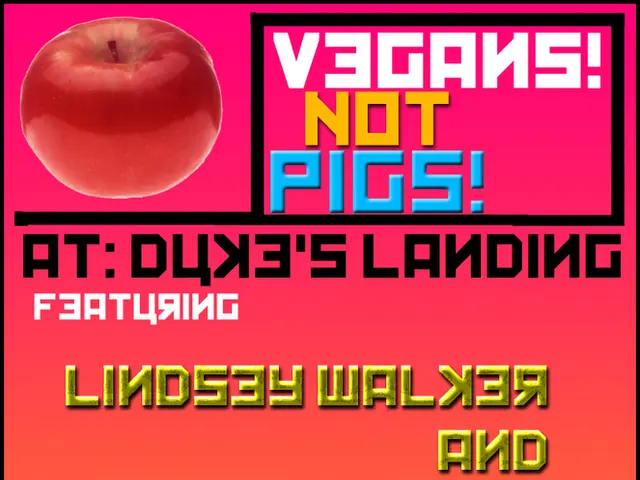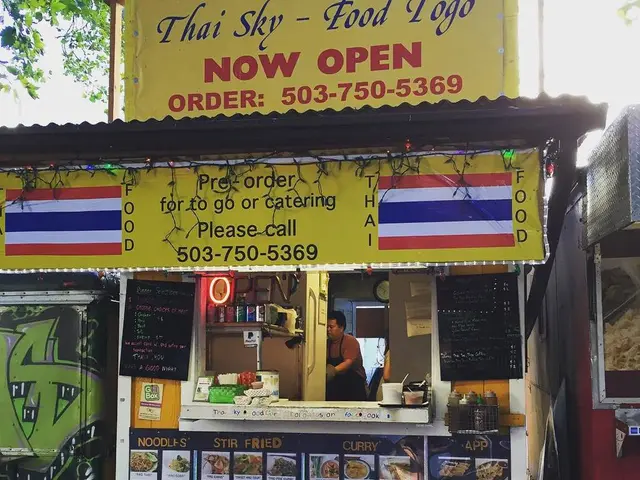The Music Industry in Crux: AI vs. Artists
Transforming educational structure in music: Implications of AI on the music industry landscape
Berlin (dpa) - In the era of technological advancements, AI-generated music is becoming a reality, pushing a button to produce lyrics, instruments, and vocals. However, this burgeoning technology raises concerns about the rights and earnings of musicians whose works are the foundation for these AI models.
Daily, streaming service Deezer welcomes 20,000 AI-crafted songs, as announced in April. While these creations may not match the caliber of human artists, German singer Levina discusses the challenge of capturing attention amidst the sea of music flooding streaming platforms. "When so much of it is still fueled by AI, it makes the struggle for visibility that much harder," says Levina to dpa.
Unfair Payment Practices
Although many musicians are open to AI, the issue lies in the unauthorized use of their songs. Christopher Annen, of the musicians' association Pro Musik, explains the concern: "It's unfair that their songs are 'taken' by providers, where so much passion, skill, and sincerity has been poured in." Companies like the provider of the chatbot ChatGPT, OpenAI, and Suno, creator of an AI program that recreates real songs, are accused of infringing on artists' rights.
The Draining Fire
The unequal distribution of income in the music industry is far from a new issue. Matthias Hornschuh of the "Copyright Initiative" describes AI as a catalyst for a long-burning fire in the sector. On major streaming services, the majority of artists have been missing out on income for a long time, according to a federal government-funded study. In 2023, 75% of all streaming service revenues went to just 0.1% of artists.
German collective management organization Gema, representing the copyrights of around 95,000 members, fears that AI could worsen this situation. According to a study conducted by Gema and its French counterpart Sacem from January 2024, 27% of authors' incomes are at risk, resulting in potential losses of over 2.7 billion euros in Germany and France by 2028.
AI Plagiarism of Chart-Topping Tunes?
In a bid to safeguard artists' incomes, Gema has taken legal action against AI providers such as OpenAI and Suno. Last January, Gema filed a lawsuit against Suno, alleging that the US company's AI program had recreated real songs like "Breathless Through the Night" by Helene Fischer and "Mambo No. 5" by Lou Bega almost identically, without obtaining the necessary permissions and royalties.
Transparency and Response
Artists crave transparency from streaming platforms. For instance, Levina suggests that services should label which music is created by AI. In addition, musicians call for greater openness regarding payments. "The lack of transparency about the inner workings and where money is flowing leaves many uninformed," says Levina.
While AI may not replicate human emotions, as claimed by the AnnenMayKantereit guitarist Annen, musicians must continue their fight to preserve their rights in the music industry. Otherwise, warns Levina, "the music industry could go even further downhill."
[1] "AI Could Be Bad for the Music Industry" (VICE, 2022): https://www.vice.com/en/article/7k8qb5/ai-could-be-bad-for-the-music-industry
[2] "The Musical AI Landscape: Opportunities, Threats, and Future Directions" (Future of Music Coalition, 2021): https://www.futureofmusic.org/blog/2021/10/25/the-musical-ai-landscape-opportunities-threats-and-future-directions
[3] "Copyright and the AI Era: Ensuring a Fair Future for Creators" (CISAC, 2020): https://www.cisac.org/documents/copyright-and-the-ai-era-ensuring-a-fair-future-for-creators/
[4] "Music and AI: A New Creative Force" (Ableton, 2021): https://www.ableton.com/en/learn/tutorials/the-future-of-music-artificial-intelligence/
[5] "AI-Generated Music Is Becoming More Popular, But What Does It Mean for the Music Industry?" (Forbes, 2020): https://www.forbes.com/sites/geoffreywong/2020/06/19/ai-generated-music-is-becoming-more-popular-but-what-does-it-mean-for-the-music-industry/?sh=3243c8be5f0a)
- The concerns about AI-generated music in the music industry extend beyond its credibility, as artists and rights organizations fear that the growing reliance on AI could lead to a drastic reduction in their earnings, with companies like OpenAI and Suno being accused of infringing on their rights.
- Amidst this rise of AI in the music industry, musicians like German singer Levina are calling for greater transparency, asking streaming services to label AI-created music and providing information about payments to ensure that artists remain informed about the inner workings and distribution of revenue.








